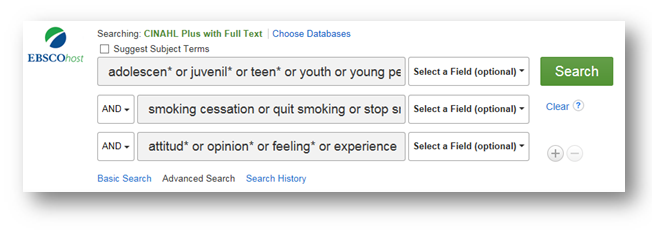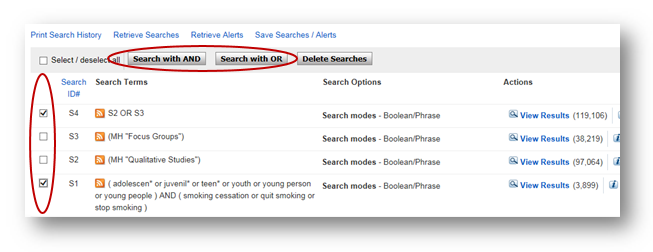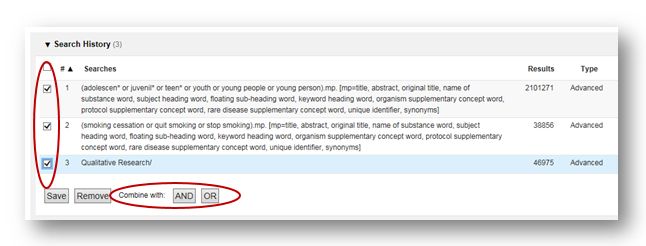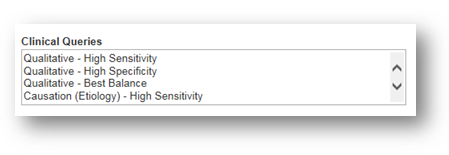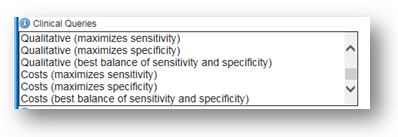Health sciences resources
What is a qualitative research?
Qualitative research seeks to understand and interpret personal experiences, behaviours, interactions, and social contexts to explain the phenomena of interest, such as the attitudes, beliefs, and perspectives of patients and clinicians; the interpersonal nature of caregiver and patient relationships; the illness experience; or the impact of human suffering (Wong et al., 2004).
Qualitative evidence extracts information useful in clinical decision making when it comes to issues related to whether an activity is feasible, appropriate or meaningful. Meaningfulness relates to the personal experience, opinions, values, thoughts, beliefs and interpretations of clients.
-
Phenomenology looks at human perception and subjectivity and focuses on the ‘lived experience’ of the individual concerned. Data of the participant’s experience is collected using a focused but non-structured interview. The interviews are transcribed verbatim and then researchers try to identify the main themes of experience and derive meaning and knowledge from the phenomena.
-
Grounded theory involves the discovery of a theory through the analysis of data. It is a research method that is almost opposite to the traditional social science research in that it does not begin with a hypothesis but starts with data collection through a variety of methods. From the data collected, the key points are marked with a series of codes which are grouped into similar concepts. From these concepts categories are formed which form the basis for the creation of a theory or hypothesis.
-
Ethnography is used to study groups of people who share social and cultural characteristics; think of themselves as a group;and share common language, geographic locale and identity. Ethnography provides a ‘portrait of the people’. It involves participant observation, the recording of field notes and interviewing key informants.
-
Action research asks the question, “What is happening here and how could it be different?” It is a process of reflecting on the world to change it followed by evaluation. Data collected can be both qualitative and quantitative. Themes, issues and concerns are extracted and discussed by both the research team and the participating group.
Source: Hoffmann, T., Bennett, S., & Mar, C. (2013). Evidence-based practice across the health professions (2nd ed). Elsevier Australia.
You can begin to build your search strategy by translating the significant concepts from your research question into a concept grid.
Sample topic: What are teenagers’ attitudes to quitting smoking?
| Concept 1: Teenagers | Concept 2: Smoking cessation |
Alternative (similar) keywords
Authors often use different terms to describe the same concept. When searching it is important to consider alternative terms (synonyms) and spelling variations which may be used.
Similar terms can be added to the grid beneath the relevant concept:
Sample topic: What are teenagers’ attitudes to quitting smoking?
| Concept 1: Teenagers | Concept 2: Smoking cessation |
| Adolescent Young people Youth |
Smoking cessation Stop smoking Quit smoking |
Combining search terms with AND and OR
You can structure your search using AND and OR to combine your keywords:
- AND - use to combine keywords that reflect different concepts e.g. Adolescent AND smoking cessation
- OR - use to combine keywords that reflect similar concepts e.g. Teenager OR Adolescent OR Youth
Database search tips
- Truncation (usually *) can be used to find alternate endings of a word e.g. educat* for educate, educated, education, educational etc.
- Phrase searching (“ “) can be used to search for two or more terms as a phrase rather than individually e.g. “lived experience”
- Wildcards (usually ?) can be used for spelling variations e.g. wom?n for woman and women
Once you have developed your search strategy, you can then use the methods below to find qualitative literature on your topic. Combine your topic search with:
- Keywords relating to qualitative studies OR
- Qualitative subject headings
Searching with qualitative keywords
You can combine your topic search terms with keywords relating to qualitative studies. Some terms to consider are: Perceptions; Attitudes; Viewpoints; Opinions; Beliefs; Understanding; Feelings; Experiences. Eg:
teen* OR adolescen* OR youth*
AND
“smoking cessation” OR “stop smoking” OR “quit smoking”
AND
attitude* OR opinion* OR feeling* OR belief* OR experience* OR qualitative*
Also think about qualitative methodologies (e.g. ethnography) or methods for data collection (e.g. focus group).
- Methodology : Qualitative; Ethnography; Phenomenology; Grounded theory; Action research; Ethnological research; Ethnomethodology; Semiotics; Lived experience or life experiences.
- Data collection or data analysis : Focus group; Observational method; Interview; Survey; Questionnaire; Field study; Narrative.
- Mixed methods research : Mixed models; Mixed designs; Multiple methods; Multimethods; Triangulation.
Searching with qualitative subject headings
If you are not finding what you need using qualitative keywords, then you may want to consider searching with subjects headings as well. Subject headings are standardised terms, taken from a thesaurus, which are used to describe the topic/s and research methodologies covered in each article.
As they aim to reflect the content of the full article, searching with qualitative subject headings can be more precise than a keyword search in identifying qualitative research articles. Subject headings are also useful to overcome differences in terminology as similar terms are grouped under one heading (e.g. Health services research is applied to articles which include the terms action research, health care research, medical care research, or health services evaluation ).
Searching CINAHL
CINAHL Plus with Full Text is a database of nursing and allied health literature.
To search using keywords: Combine your topic search with qualitative keywords.
To search using qualitative subject headings:
- Perform a search for your topic keywords.
- Tick the Suggest Subject Terms option which appears above the search boxes.
-
Enter the qualitative term (e.g. qualitative research) in the search box and click Search.
- CINAHL will suggest relevant subject headings based on the keyword you entered.
- Tick the box next to the subject heading/s (e.g. Qualitative studies) you wish to use.
- Tick Explode to include narrower terms for the subject heading in your search.
-
Click Search Database.
-
Repeat for other qualitative subject headings. Once all have been searched for, tick the boxes next to the search sets and select Search with AND (different keywords) or Search with OR (similar terms) to combine.
Consider some of the following CINAHL Subject Headings for your search:
- Qualitative Studies (Explode to include: Action Research, Ethnographic Research, Ethnological Research, Grounded Theory, Naturalistic Inquiry & Phenomenological Research); Focus Groups ; Narratives ; Interviews (Explode to include Semi-Structured Interview, Structured Interview & Unstructured Interview); Descriptive Research ; Diaries ; Observational Methods (Explode to include Nonparticipant Observation, Participant Observation, Structured Categories & Unstructured Categories); Life Experiences ; Multimethod Studies.
Searching Ovid databases (Medline, Embase, PsycINFO)
To search using qualitative subject headings in the Ovid databases (Medline, Embase, PsycINFO etc.):
- Log in to the database and select the Advanced Search option
- Perform a search for your topic
- Tick Map Term to Subject Heading
-
Enter the qualitative term (e.g. qualitative research) in the search box and click Search
- The database will suggest relevant subject headings based on the term you entered
- Tick the box next to the subject heading or headings (e.g. Qualitative Research) you wish to use
- Tick Explode to include narrower terms for the subject heading in your search
-
Click Continue
-
Repeat for other qualitative subject headings. Once all have been searched for, tick the boxes next to the search sets and Combine with: AND (different keywords) or OR (similar terms) to run your search
Consider some of the following subject headings for your search:
Qualitative Research (Explode to include Hermeneutics); Empirical Research; Grounded Theory; Interview; Interviews as Topic; Focus Groups; Narration; Anecdotes as Topic; Personal Narrative; Diary; Health Knowledge, Attitudes, Practice; Health Services Research.
Consider some of the following subject headings for your search:
Qualitative Research (Explode to include Hermeneutics); Empirical research; Grounded theory; Phenomenology; Interview (Explode to include Delphi study, Semi structured interview, Structured interview, Telephone interview & Unstructured interview); Narrative; Attitude to health.
Consider some of the following subject headings for your search:
Qualitative Methods (Explode to include Focus Group, Grounded Theory, Interpretative Phenomenological Analysis, Narrative Analysis, Semi-Structured Interview & Thematic Analysis); Interviews; Focus Group Interview; Narratives; Mixed Methods Research; Observation Methods; Phenomenology.
This information is pertinent to researchers who are carrying out a qualitative systematic review.
A qualitative systematic review is a review based on a clearly formulated question. It uses systematic and reproducible methods to identify, select and critically appraise all relevant research, and to collect and analyse data from the studies that are included in the review. Qualitative systematic reviews derive data from observation, interviews, or verbal interactions and focus on the meanings and interpretations of the participants.
Checking existing reviews /protocols
It is recommended that you check whether a systematic review on your question has already been conducted or is currently being undertaken. Checking existing reviews/protocols ensures that you are not repeating someone else’s work. This may also help you in choosing or refining a review topic. Look for existing systematic reviews/protocols in:
Resources
-
Cochrane Handbook for Systematic Reviews of Interventions
Chapter 20: Qualitative research and Cochrane reviews -
Joanna Briggs Institute (JBI) Manual for evidence synthesis
Chapter 3: Systematic reviews of qualitative evidence
Examples
- A qualitative systematic review of internal and external influences on shared decision-making in all health care settings. Truglio-Londrigan, M., Slyer, J., Singleton, J. K., & Worral, P. S. (2014)
Focusing your research question and developing a search strategy
The PICO (Patient, Intervention, Comparison, Outcome) framework is commonly used to develop focused clinical questions for quantitative systematic reviews. A modified version, PICo, can be used for qualitative questions.
- Population - What are the characteristics of the patient or population? What is the condition or disease you are interested in?
- Interest - What is the phenomena of interest? A defined event, activity, experience or process?
- Context - What is the setting or distinct characteristics?
Sample topic:
What are caregivers’ experiences with providing home-based care to patients with HIV/AIDS in Africa?
P - Caregivers providing home-based care to persons with HIV/AIDS
I- Experiences
Co - Africa
Use the following worksheets to create a search strategy:
The SPIDER framework is an alternative search strategy tool (based on PICo) for qualitative/mixed methods research.
- Sample - Who is the sample or population of interest?
- Phenomenon of Interest - What is the phenomena of interest? A defined event, activity, experience or process?
- Design - What types of study methods are you interested in?
- Evaluation - What are the evaluation outcomes? (May be subjective - opinions, feelings etc.)
- Research type - What type of research are you interested in? Qualitative or mixed method (qualitative & quantitative)?
Sample topic:
What are the experiences of women undergoing IVF treatment?
S - Women
PI - IVF treatment
D - Questionnaire or survey or interview
E - Experiences or views or attitudes or feelings
R - Qualitative or mixed method
Beyond PICO: The SPIDER tool for qualitative evidence synthesis Cooke, A., Smith, D., & Booth, A. (2012)
PICO, PICOS and SPIDER: A comparison study of specificity and sensitivity in three search tools for qualitative systematic reviews Methley, A. M., Campbell, S., Chew-Graham, C., McNally, R., & Cheraghi-Sohi, S. (2014)
SPICE can be used for both qualitative and quantitative studies. SPICE stands for Setting (where?), Perspective (for whom?), Intervention (what?), Comparison (compared with what?) and Evaluation (with what result?).
Sample topic:
What are the coping skills of parents of children with autism undergoing behavioural therapy in schools?
S - Schools
P - Parents of children with autism
I - Behavioural therapy
C - None
E - Coping skills
Clear and present questions: Formulating questions for evidence based practice Booth, A. (2006)
Sources to search
When searching the literature for a qualitative systematic review, the following sources should be considered:
- Databases - subject specific, general and evidence-based databases
- Citation databases such as Web of Science and Scopus
- Reference lists of sources
- Relevant research councils and institutions
- Experts in the field
- Grey literature - sources include reports, dissertations, conference proceedings etc.
- Hand searching - manually examining relevant publications page by page
Searching with qualitative filters
When undertaking a qualitative systematic review it is recommended to use a search filter.
A filter is a standardised search strategy that is designed to be used in conjunction with a subject search to retrieve valid studies from the (primary) medical or health sciences literature. Filters work in one of two ways by:
- identifying particular publication types or study designs most likely to answer a question
- isolating subject or free-text terms most likely to be associated with high quality studies
Methodological search filters focus on the methods of qualitative research rather than the content. They can be:
- Sensitive - search maximises the retrieval with the risk of more irrelevant articles being retrieved
- Specific - narrows the search but there is a possibility of missing relevant articles
- Best balance - gives a search that provides a good balance between sensitivity and specificity
Click the tabs in this box to find out how to search with filters in the CINAHL, Medline, PsycINFO and PubMed databases.
Perform a search for your topic then filter the search by selecting either Qualitative - High Sensitivity, Qualitative - High Specificity or Qualitative - Best Balance from the Clinical Queries search option.
Perform a search for your topic then select Additional Limits in the search box. Under Clinical Queries select either Qualitative (maximizes sensitivity), Qualitative (maximizes specificity) or Qualitative (best balance of sensitivity and specificity). Click on Limit A Search to apply the filter to your topic search.
Copy and paste the following search string into PsycINFO and combine with your topic search.
(((“semi-structured” or semistructured or unstructured or informal or “in-depth” or indepth or “face-to-face” or structured or guide or guides) adj3 (interview* or discussion* or questionnaire)).ti,ab,id. or (focus group or qualitative or ethnograph* or fieldwork or “field work” or “key informant”)).ti,ab,id. or exp qualitative research/ or exp interviews/ or exp group discussion/ or qualitative study.md. not “Literature Review”.md.
Copy and paste the following search string into PubMed and combine with your topic search.
(((“semi-structured”[TIAB] OR semistructured[TIAB] OR unstructured[TIAB] OR informal[TIAB] OR “in-depth”[TIAB] OR indepth[TIAB] OR “face-to-face”[TIAB] OR structured[TIAB] OR guide[TIAB] OR guides[TIAB]) AND (interview*[TIAB] OR discussion*[TIAB] OR questionnaire*[TIAB])) OR (“focus group”[TIAB] OR “focus groups”[TIAB] OR qualitative[TIAB] OR ethnograph*[TIAB] OR fieldwork[TIAB] OR “field work”[TIAB] OR “key informant”[TIAB])) OR “interviews as topic”[Mesh] OR “focus groups”[Mesh] OR narration[Mesh] OR qualitative research[Mesh] OR “personal narratives as topic”[Mesh]
PubMed Health Services Research Queries
- From the PubMed home page, select Topic-Specific Queries under PubMed Tools
- Click on Health Services Research (HSR) Queries. This page provides a filter for specialized PubMed searches on healthcare quality and costs
- Enter your search topic and select Qualitative research under Category
- Choose either the broad or narrow scope.
Reporting literature searches
An important aspect of undertaking a systematic review is to provide a clear report of your search strategy. The STARLITE mnemonic may be used to ensure that all essential elements for reporting your literature search are included.
| Sampling strategy |
|
| Type of studies |
|
| Approaches |
|
| Range of years |
|
| Limits |
|
| Inclusion and exclusion |
|
| Terms used |
|
| Electronic sources |
|
‘‘Brimful of STARLITE’’: Toward standards for reporting literature searches Booth, A. (2006).
Critical appraisal of qualitative research
Appraising qualitative evidence requires an assessment of the quality of the research in relation to the research methodology, methods and analyses used and the interpretation of data. The following checklists are useful critical appraisal tools, each consisting of ten criteria:
JBI Critical Appraisal tools: Checklist for Qualitative Research
